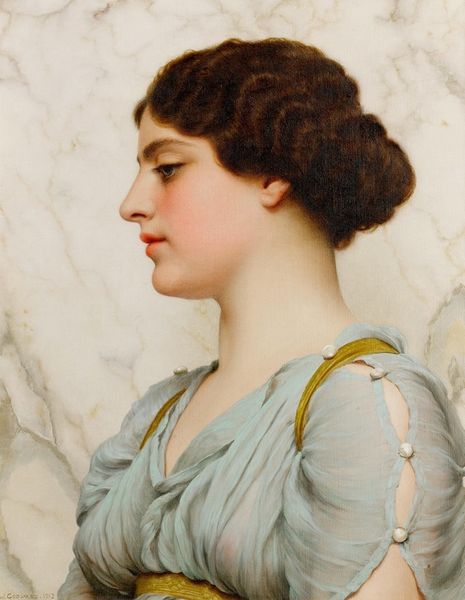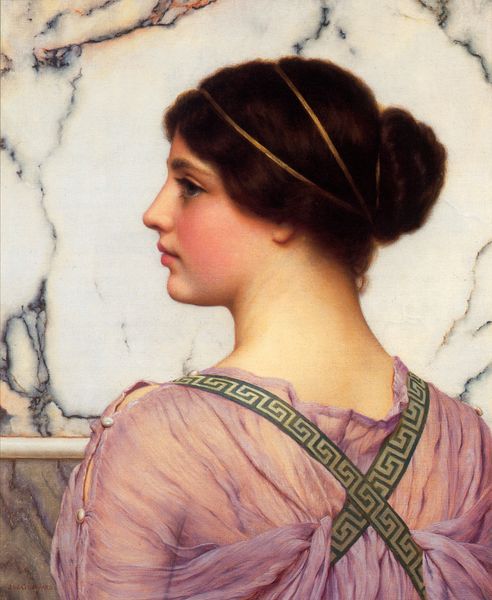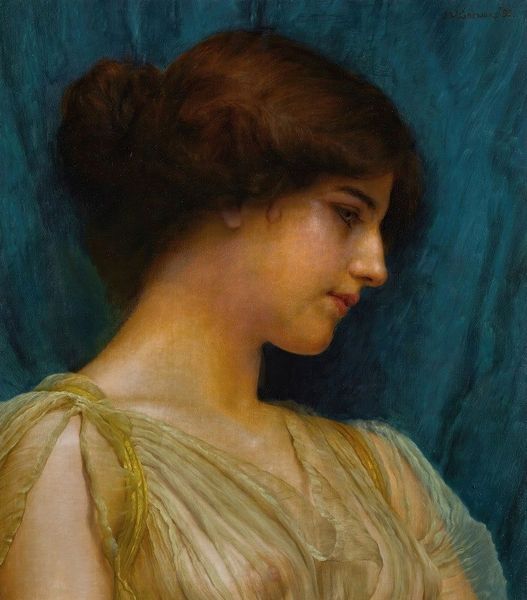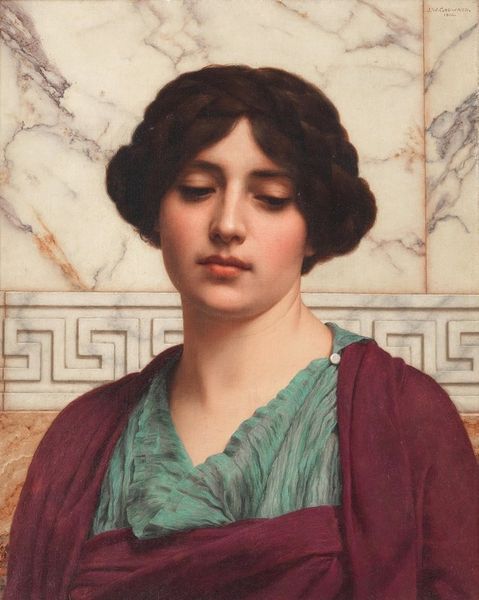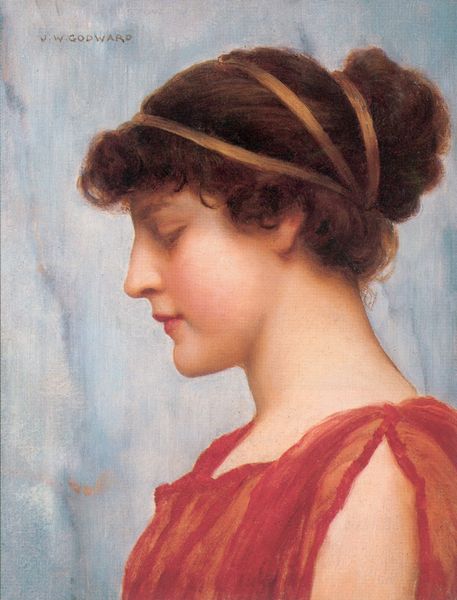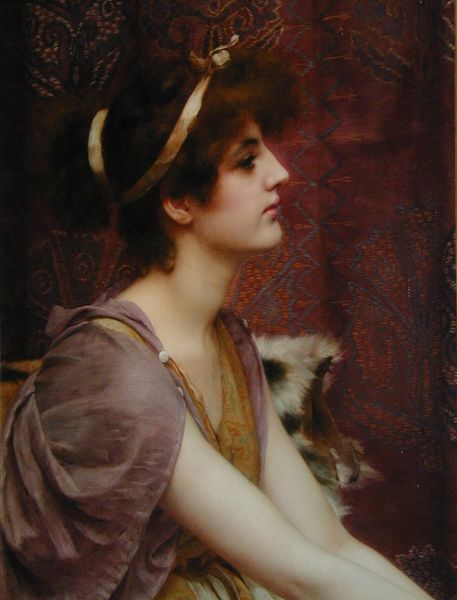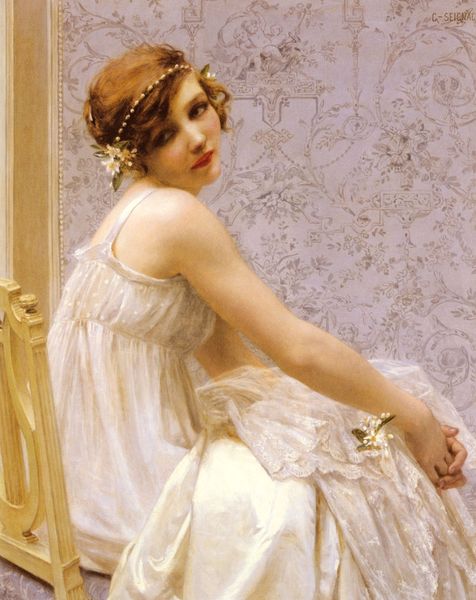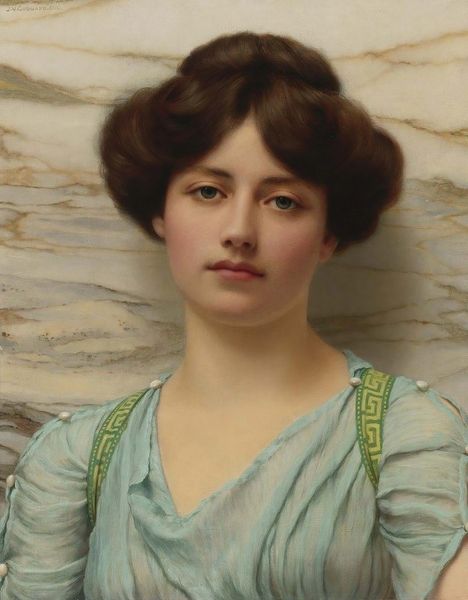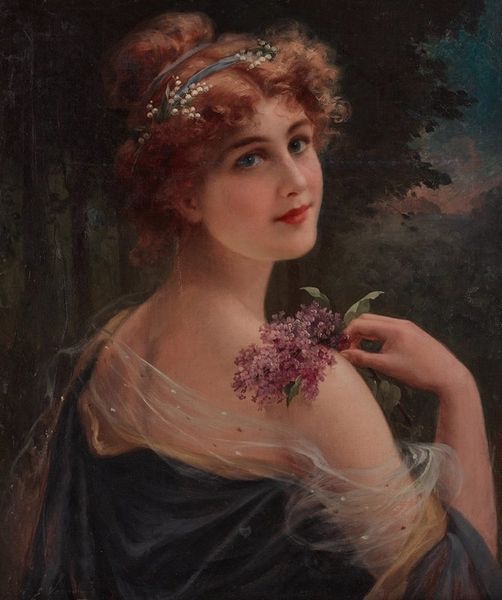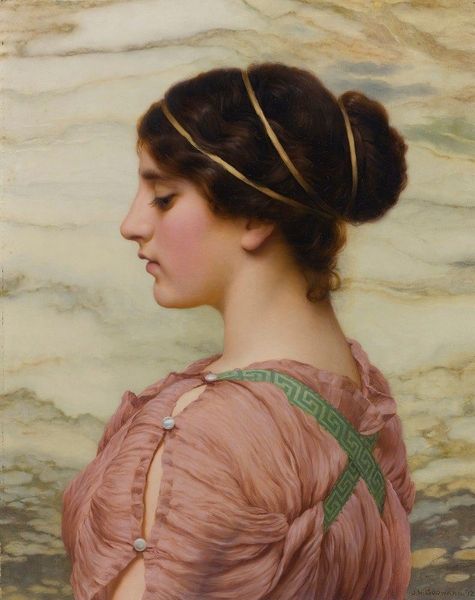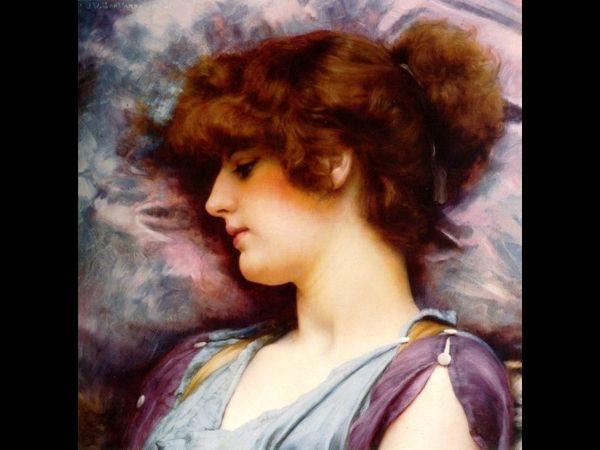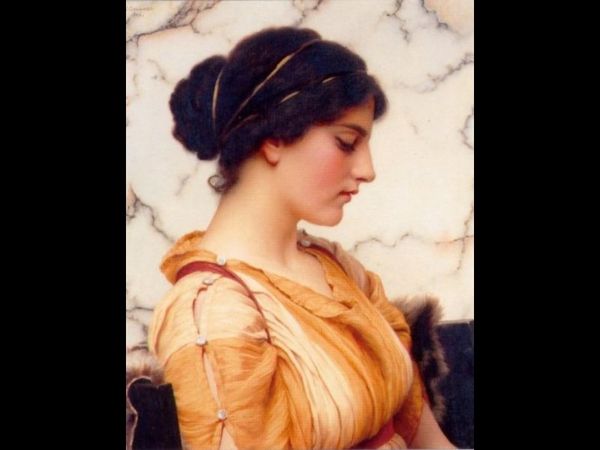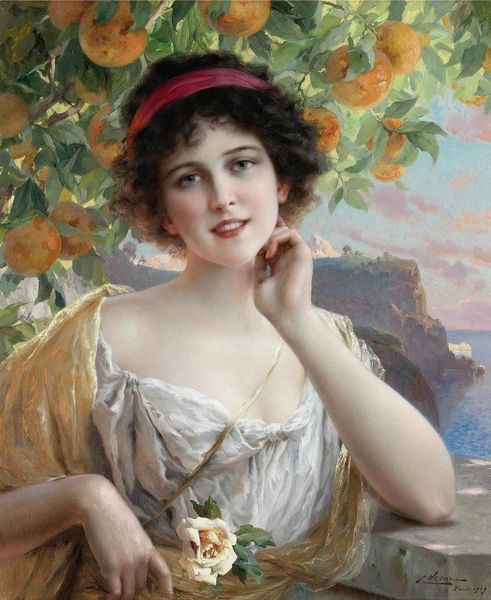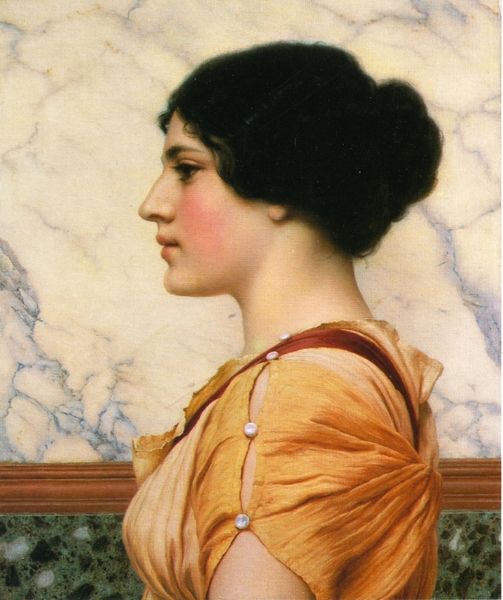
Copyright: Public Domain: Artvee
Editor: Here we have John William Godward's "Atalanta" from 1908, an oil painting depicting a woman in classical garb. The painting has a serene, almost idealized quality. What strikes me is her almost mournful expression. What do you see in this piece? Curator: I see a potent articulation of the female gaze and a complex negotiation of female agency within the classical world, so often represented by male artists. The way Godward positions Atalanta in profile, coupled with her subtle yet palpable sense of self-possession, challenges traditional portrayals of women as passive objects. How does her gaze interact with your own interpretation of her character within the broader historical narrative of Greek mythology? Editor: I never thought about her "gaze," so to speak. I was mainly considering her narrative as an independent huntress within a male-dominated heroic landscape. Curator: Precisely! But how does Godward visually communicate that independence? Think about the stylistic choices: the soft, Romantic treatment juxtaposed with the crisp, almost academic precision in rendering the marble background. Doesn't this create a tension that mirrors Atalanta’s own conflicted position as both a participant in and an outsider to the dominant patriarchal order? Editor: So, you're saying that her physical depiction challenges the societal expectations of women at the time, even if Godward may not have consciously intended to make such a statement? Curator: I'm suggesting we analyze the artist's visual language within its own cultural and historical context. Late 19th and early 20th-century representations of women, especially those drawing on classical antiquity, are often rife with anxieties about female empowerment and shifting social roles. Exploring these anxieties helps us to not only appreciate the artistic skill on display but also to understand the underlying power dynamics at play. Editor: I've learned to analyze the piece from a social and cultural standpoint. Thanks! Curator: And I am glad to reconsider Atalanta through your lens of mythology and female heroism!
Comments
No comments
Be the first to comment and join the conversation on the ultimate creative platform.
